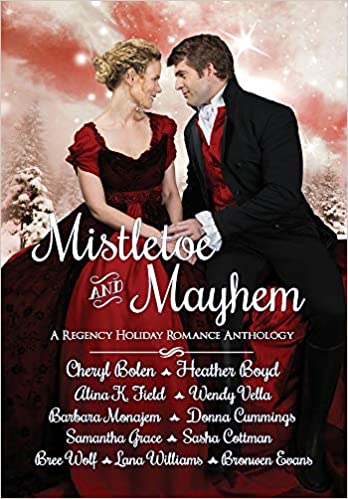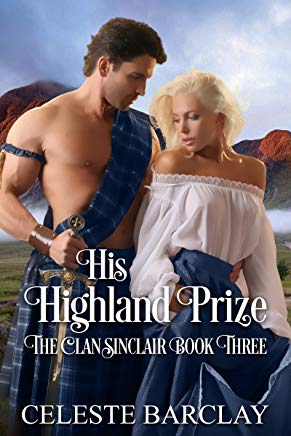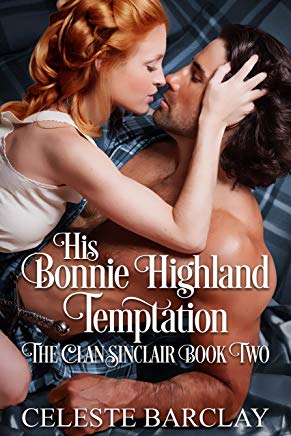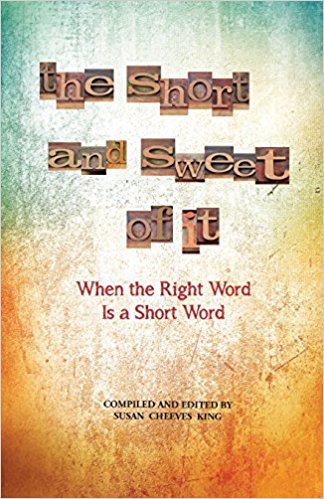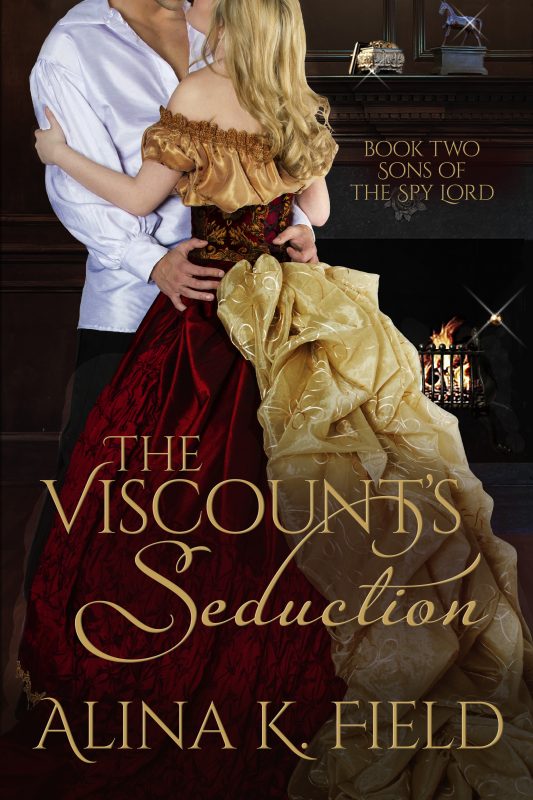Contest Deadlines
February 5, 2011 by Marianne H. Donley in category Archives tagged as contests, deadlinesFebruary Contest Deadlines
Updated and all sites tested…Compiled by Donna Caubarreaux….May be forwarded with credits.
..
EA = Electronic Format Available
EA/Non US = Electronic for Foreign Entries
EO = Electronic Only
MO = Members Only
U = Unpublished
P = Published
P/3 = Not published in three years
Pnr = Published, but not by RWA standards
PC = Not published in category selected
..
Stroke of Midnight Contest (U – PC – EO)
Passionate Ink
Received by February 7, 2011 (Extended)
First thirty-five pages. (at least 10K words)
http://www.passionateink.org/contests/#unpublished
..
The Shelia (EO – U – P/5)
Valley Forge Romance Writers
Deadline: February 11, 2011
Total of 35 pages, includes synopsis (not to exceed five pages)
http://www.vfrw.com/
..
The Sandy (U – EO)
Crested Butte Writers
Deadline: Midnight – February 13, 2011
First twenty pages and up to two page synopsis.
http://thesandy.org/sandy.php
..
Between the Sheets
Greater Detroit RWA
Deadline: February 14, 2011
Entries shall include a ten-page love scene (sweet to erotic) and a one-page
unjudged set-up.
http://www.gdrwa.org/contests…html
..
2011 Manuscript Contest
Writers’ League of Texas
Deadline: February 15, 2011 (Postmarked or Delivered by 6:00 PM)
One page synopsis (250 words) and first ten pages (2500 words).
http://www..writersleague.org/contests/manuscript.html
..
Fire and Ice (U – P/5)
Chicago-North RWA
Received by February 16, 2011
First twenty-five pages.
http://www.chicagonorthrwa.org/contest.shtml
..
Jeannie Gray Golden Frendship Award (U – Golden Heart Entrants)
GH99er Loop
Received by Midnight EST on February 18, 2011
250-300 word essay. Topic is on website.
http://jeannieaward.wordpress.com/
..
PNWA Literary Contest (U – EO for romance entries)
Pacific Northwest Writers Association
Received by February 18, 2011
Twenty-eight page limit which includes synopsis.
http://www.pnwa.org/displaycommon.cfm?an=6
….
Check out Contests and Contest Winners on: http://contestdivas.blogspot.com/
Check out the Award Winning Romance Books on:
http://awardwinningromances.blogspot.com/
….
Contest Alert-All the news on upcoming contests, plus Finalist and Winner
listings, questions, etc. Sign up now!
ContestAlert-subscribe@yahoogroups.com
….
Announcement only list:
ContestDeadlines-subscribe@yahoogroups.com
….
For Published Authors
ContestAlertPublished-subscribe@yahoogroups.com
….
If you’re a Contest Judge, join
ContestsJudges-subscribe@yahoogroups.com
….
Donna Caubarreaux is a member of Coeur de Louisiane, Scriptscene Chapter, NOLA Stars, Heart of Louisiana, and Kiss of Death. She received a RWA Service Award in 1997
Calls for Submissions
January 30, 2011 by A Slice of Orange in category Archives
Decadent Publishing also is building a YA catalog with some 5-star reviewed books. They would like to see some shorts (5k+) to novella-length subs. I would never turn down a fantastic full-length, however.
Our focus at Decadent Publishing is quality storytelling. “We employ some really WONDERFUL editors, and they really care about developing a story and an author to give everyone the best.â€
For more information, visit http://www.decadentpublishing.com and click on “Submissions.â€
Master of Mine: Sometimes men and women need to be taught a lesson, and what better way to make a body burn with desire, than sexual submission?
Evernight Publishing wants your hot, sophisticated BDSM Romance. Stories must be 5 – 10K, in any sub-genre (historical, contemporary, paranormal, etc.). Think kink, pain for pleasure, increased sexual tension and limitations. We want a HFN or HEA for one woman with one or more men. Use frank language typical of the genre, and make sure your manuscript is polished and engaging.
As Red Sage’s first authors created erotic romance, this is where our heart is, so we want romance stories, which are erotic. Therefore a majority of what we publish will be romance and erotica. We also feel readers want variety. Sometimes you like erotic and sometimes you just want a great mystery or science fiction story or even something else. Surprise us and come up with something completely different!
Genre and sub-genre is unimportant, as long as the writing quality is strong and both the romantic and sensual elements are appropriate for what we publish.
We do not accept literary Erotica submissions. Manuscripts with obvious grammar, formatting and editing issues will not be considered. Make sure your work is critiqued and polished prior to submitting.
Heat levels go from “sweet†to “molten.†For more information, visit http://www.liquidsilverbooks.com/guidelines.htm
“OMG I ♥ It: Writing the YA Teens Want to Read ” with Suzanne Lazear
January 26, 2011 by A Slice of Orange in category Archives tagged as Online Class********** permission to forward **********
Hi everyone! Check out the exciting online classes offered by the Orange County Chapter of RWA!
“OMG I ♥ It: Writing the YA Teens Want to Read”
with Suzanne Lazear
February 14 to March 12, 2011
Enrollment Information at http://www.occrwa.org/onlineclassFeb11.html
COST: $20 for OCC members, $30 for non-members
If you have specific questions, email occrwaonlineclass@yahoo.com
ABOUT THE CLASS:
The Young Adult market seems the place to be, but how to you not only make your story stand out in the crowd, but write a story teens want to read?
Teens are smart, savvy, and the books they read today are not your mother’s teen fiction.
Come join us and find out what teens expect out of a YA novel and how to write the YA story you want to tell in a way that appeals to today’s teens. Learn about the different genres from paranormal to contemporary and from clean teen to racy reads.
This hands-on class will work on the mechanics of writing YA and how it differs from writing for adults. Topics include creating realistic dialogue, characters, worlds, and plots teens can relate to, tone and pacing, and other differences and avoiding common YA pitfalls as well as what teens expect from today’s YA authors.
All YA manuscripts in all genres are welcome from “I have an idea†to polished and ready.
ABOUT THE INSTRUCTOR:
Suzanne Lazear writes for teens because her dancers made her and she never looked back. Sometimes known as “Lolita Suzanne,†she’s a regular blogger at the Steampunk group blog Steamed! www.ageofsteam.wordpress.com/ and a member of the Los Angeles Romance Writers. She’s never had trouble standing out in the crowd, but wearing a tiara will do that.
Her Steampunk Dark Fairytale for teens, “Innocent Darkness” will be released by Flux in August, 2012. She occupies a small corner of the West Coast where she lives with the hubby, the tot, a hermit crab, and two chickens, and is currently trying to make a ray gun to match her ball gown.
Enrollment Information at http://www.occrwa.org/onlineclassFeb11.html
COST: $20 for OCC members, $30 for non-members
Coming in March 2011
“Mauled Men, Drowned Dames and Crispy Critters; a Body Disposal Primer for Writersâ€
with Jeanne Adams
You’ve axed, shot or otherwise knocked off a key character in your latest book, now what? You have to do SOMETHING with the body! Find out everything you ever wanted to know about the pernicious particulars of body disposal and how to use minutiae of death to throw your characters together or drive them apart.
Jeanne P. Adams knows a thing or two about getting rid of a body, in reality as well as in books…her third book, Deadly Little Secrets (Zebra, Sept. 2010) is already being hailed as “One of the best Suspense Books of the Year!†by Romantic Times. She also is a multi-published non-fiction writer and consultant with twelve years of funeral business experience working both for a cemetery and several funeral homes. In her reading, she’s winced over a variety of mistakes dealing with the story’s dead guy (or gal), which led to this class!
Check out our full list of workshop at http://www.occrwa.org/onlineclasses.html
Want to be notified personally two weeks before each class? Be sure you’re signed up for our Online Class Notices Yahoo Group! Sign up at the bottom of http://www.occrwa.org/onlineclasses.html or send a blank email to OCCRWAOnlineClassNotices-subscribe@yahoogroups.com
********** permission to forward **********
0 0 Read moreAm I an Idiot? Working with a Freelance Editor
January 15, 2011 by A Slice of Orange in category Archives tagged as freelance editor, how to, writing processJanuary. We begin anew. We slough off our baggage and leave the past behind. Except when we don’t. Which brings us to the topic of freelance editors.
I have dragged mine into every New Year, every new project,* every new puddle of angst where I wallow in the knowledge that I will never write a decent book again. I have done this for 26 years. My freelance editor’s name is Jenny Jensen**. To her credit, she does not roll her eyes as she takes me by the scruff of the neck, shakes off the muck and and points me back to the computer. I use her because she is in my corner. I also use her because I sell more often when I do.
That fact alone should be enough for me to never question my association with Jenny, yet I do. I want to know why, after all these years, can’t I edit myself? Haven’t I learned anything from her? I had to know. Am I an author idiot?
Thankfully, the answer was no and Jenny had a couple of good reasons why I wasn’t:
Writing is a fast and furious process when it is going well. Grammar and spelling are not top of mind when an author is ‘in the zone’; words and ideas must flow freely.
Self-editing is prone to ‘blindness’. The author often sees no difference between her intent and the typed words. A good editor understands and respects the author’s words and voice while cleaning up the grammatical flaws that set the signals – signals that allow the reader to effortlessly navigate the story.
Some writers see punctuation as a bother. A well-punctuated manuscript will catch the eye of a publisher and so will one that is not punctuated well. Only one will sell.
Finally, some people are writers and others are editors. Like a writer with an instinct for story, an editor has an instinct for a pause, a rolling stop and when to quit. She knows when creativity and inspiration becomes awkward and interferes with story.
Knowing why I use a freelance editor usually leads to the question…
Can Only Rich Writers Afford a Freelance Editor?
Anyone who has been writing as long as I have can tell you that writing is not the road to riches. Most of us write while holding down other jobs and dealing with families. Some write for the pure love of it; most write in the hopes of making it their profession. So, how can the expense of a freelance editor be justified?
First an author must understand that books are business. New York publishers have bottom lines to meet, independently published authors want to sell their books, online retailers want to turn a profit. The way to determine if it is worth spending money on a freelance editor is to first define your writing objective.
If you want to attract an agent, a New York publisher or stand out in the indie market then, in my opinion, an editorial eye is a necessity. Prices range from the ridiculously cheap to the astronomically expensive. Some projects only need grammatical assistance and others continuity or story editing. Story editing is more expensive but, in my case, is critical. I write thrillers that rely on a trail of clues and red herrings and I cannot assess the effectiveness the webs I weave on my own.
In this roiling market, those who offer the cleanest, most professional product will be noticed. In the e-book market, those who present a flawed product will be called on the carpet instantly and very publicly. That is the worst kind of publicity and hard to recover from.
How Do I Work with a Freelance Editor?
The same way you work with a New York editor attached to a publisher. You respect one another’s expertise and perspective. You have discussions, not confrontations. You understand that while this is your book, her work is also held out to public scrutiny.
The Author:
Do not forward your first draft. Make it the best it can be before offering it for critique.
When the editor returns her comments/changes read them, set them aside and come back to them in 24 hours.
Look at your edited work with an objective eye. The editor is the first reader. If she questions something so will the person who buys your book.
Pay your bills, say your thank yous. Even if you don’t like editorial suggestions, the work has been done. This is a small community- and getting smaller all the time considering the internet – and an author’s reputation is easily damaged.
Ask questions. If something doesn’t make sense, talk it out. Most freelance editors offer a certain number of follow-ups. Be succinct. Be focused.
Do not expect continuity editing if you have paid strictly for grammar/spelling edits.
The Editor:Should be respectful of your work and have no genre preferences.
Should exhibit that she understands your ‘voice’.
Should clearly state their fees up front and be specific about what the service entails.
Should have an acceptable turn around time.
Bottom line, if you can afford it, freelance editing makes all the difference in your final product. If you can’t spend the money find the next best thing: a middle school English teacher to help out, a wonderful book on grammar or a friend who will be read your manuscript and be honest.
Rest assured, you are not an author idiot if you can’t self-edit. You are a writer. Other (wonderful) people are (thankfully) editors. Together, we make books that people want to read.
*23 traditionally published books, 2 indie e-books, 1 film script in development.
**Jenny resides at http://www.e-bookeditor.com/. Note the wonderful example on her home page of what a difference punctuation can make.
Visit http://wwwrebeccaforster.com/ for writing tips, reading recommendations, lots of pictures and a sneak peek at my latest book.
5 0 Read moreWhat if Scarlett O’Hara was a blonde… by Jina Bacarr
January 11, 2011 by A Slice of Orange in category Archives tagged as Adventures in Writing, blonde samurai, character, Confessions of a Podcast Goddess, Gone with the Wind, heroine, Margaret Mitchell, Scarlett, Scarlett O'Hara, writer's LifeI love historicals. Reading them, writing them.
And creating the perfect heroine. But is she a blonde, a brunette or a redhead? We writers wrestle with this question every time we put fingertips to keyboard. Sometimes the character is so clear in our minds, we know for certain she’s a natural blonde (and if she isn’t, well, we won’t tell–it’s up to the hero to see if the collar matches the cuffs).
Imagine if Scarlett O’Hara was a blonde…
Do you remember the vivid opening scene with Scarlett surrounded by the redheaded Tarleton twins? Her beautiful dark hair provided a rich halo around her face and provided a contrast against her white organdy dress with flounces and flounces of ruffles. The red belt cinching in her tiny waist was the perfect accent piece to complete her outfit.
Was this what Margaret Mitchell envisioned when she wrote “Gone With the Wind?â€
In a word, no.
Ms. Mitchell describes a “green flowered-muslin†dress, not the white one. Although in the film, Scarlett does show up at the Twelve Oaks BBQ in a similar dress (who can ever forget the scene in the film when Scarlett throws a porcelain bowl across the room not knowing Rhett is lying on the couch out of her pov and he pops up with the line: “Has the war started yet?†Pure classic romantic attraction).
Which brings me to the question: how important to you as a writer and/or reader is the heroine’s hair color?
Her clothes?
Do you enjoy reading descriptions of what she’s wearing? Do designer labels intrigue you or turn you off?
I must admit I enjoyed designing my heroine’s wardrobe in “The Blonde Samurai†about a Victorian heiress who weds a British lord then falls in love with a handsome samurai.
Here is what Katie O’Roarke as Lady Carlton wore at a grand dinner:
“…Which was why I chose the color red. A defiant color, bold and perfect. I relished how the velvet gown in crushed strawberry hugged my body, the small cap sleeves sliding down my bare shoulders while the tiered soft bustle swayed behind me, the long train sweeping over the muted Oriental carpets. A long row of pearl buttons gave off an opaline luster, racing down my back like a game of dominoes.”
Tell me what you think about whether or not a description of the heroine’s hair color and her wardrobe enrich the story for you.
Frankly, my dear reader, I do give a damn…
http://www.jinabacarr.com/
The Blonde Samurai is a 2010 Reviewers Choice Award nominee for Romantic Times
Affiliate Links
A Slice of Orange is an affiliate with some of the booksellers listed on this website, including Barnes & Nobel, Books A Million, iBooks, Kobo, and Smashwords. This means A Slice of Orange may earn a small advertising fee from sales made through the links used on this website. There are reminders of these affiliate links on the pages for individual books.
Search A Slice of Orange
Find a Column
Archives
Featured Books
MISTLETOE & MAYHEM: A REGENCY HOLIDAY ROMANCE ANTHOLOGY
There’s no Christmas like a Regency Christmas spent under mistletoe! New York Times Bestselling author Cheryl Bolen and friends invite you to discover true love in eleven deliciously steamy romances in this all-new holiday collection.
More info →THE SHORT & SWEET OF IT: When the Right Word Is a Short Word
How do we say more with less? Can short, simple words make what we write so clear that the reader gets it? Or will it remind them of reading a child’s board book?
More info →THE VISCOUNT’S SEDUCTION
An Irish lady from a scandalous family gets a chance at a Season in London and an opportunity for revenge, but her schemes stir up an unknown enemy and spark danger of a different sort in the person of a handsome young Viscount.
More info →Newsletter
Contributing Authors
Search A Slice of Orange
Find a Column
Archives
Authors in the Bookstore
- A. E. Decker
- A. J. Scudiere
- A.J. Sidransky
- Abby Collette
- Alanna Lucus
- Albert Marrin
- Alice Duncan
- Alina K. Field
- Alison Green Myers
- Andi Lawrencovna
- Andrew C Raiford
- Angela Pryce
- Aviva Vaughn
- Barbara Ankrum
- Bethlehem Writers Group, LLC
- Carol L. Wright
- Celeste Barclay
- Christina Alexandra
- Christopher D. Ochs
- Claire Davon
- Claire Naden
- Courtnee Turner Hoyle
- Courtney Annicchiarico
- D. Lieber
- Daniel V. Meier Jr.
- Debra Dixon
- Debra H. Goldstein
- Debra Holland
- Dee Ann Palmer
- Denise M. Colby
- Diane Benefiel
- Diane Sismour
- Dianna Sinovic
- DT Krippene
- E.B. Dawson
- Emilie Dallaire
- Emily Brightwell
- Emily PW Murphy
- Fae Rowen
- Faith L. Justice
- Frances Amati
- Geralyn Corcillo
- Glynnis Campbell
- Greg Jolley
- H. O. Charles
- Jaclyn Roché
- Jacqueline Diamond
- Janet Lynn and Will Zeilinger
- Jaya Mehta
- Jeff Baird
- Jenna Barwin
- Jenne Kern
- Jennifer D. Bokal
- Jennifer Lyon
- Jerome W. McFadden
- Jill Piscitello
- Jina Bacarr
- Jo A. Hiestand
- Jodi Bogert
- Jolina Petersheim
- Jonathan Maberry
- Joy Allyson
- Judy Duarte
- Justin Murphy
- Justine Davis
- Kat Martin
- Kidd Wadsworth
- Kitty Bucholtz
- Kristy Tate
- Larry Deibert
- Larry Hamilton
- Laura Drake
- Laurie Stevens
- Leslie Knowles
- Li-Ying Lundquist
- Linda Carroll-Bradd
- Linda Lappin
- Linda McLaughlin
- Linda O. Johnston
- Lisa Preston
- Lolo Paige
- Loran Holt
- Lynette M. Burrows
- Lyssa Kay Adams
- Madeline Ash
- Margarita Engle
- Marguerite Quantaine
- Marianne H. Donley
- Mary Castillo
- Maureen Klovers
- Megan Haskell
- Melanie Waterbury
- Melisa Rivero
- Melissa Chambers
- Melodie Winawer
- Meriam Wilhelm
- Mikel J. Wilson
- Mindy Neff
- Monica McCabe
- Nancy Brashear
- Neetu Malik
- Nikki Prince
- Once Upon Anthologies
- Paula Gail Benson
- Penny Reid
- Peter Barbour
- Priscilla Oliveras
- R. H. Kohno
- Rachel Hailey
- Ralph Hieb
- Ramcy Diek
- Ransom Stephens
- Rebecca Forster
- Renae Wrich
- Roxy Matthews
- Ryder Hunte Clancy
- Sally Paradysz
- Sheila Colón-Bagley
- Simone de Muñoz
- Sophie Barnes
- Susan Kaye Quinn
- Susan Lynn Meyer
- Susan Squires
- T. D. Fox
- Tara C. Allred
- Tara Lain
- Tari Lynn Jewett
- Terri Osburn
- Tracy Reed
- Vera Jane Cook
- Vicki Crum
- Writing Something Romantic
Affiliate Links
A Slice of Orange is an affiliate with some of the booksellers listed on this website, including Barnes & Nobel, Books A Million, iBooks, Kobo, and Smashwords. This means A Slice of Orange may earn a small advertising fee from sales made through the links used on this website. There are reminders of these affiliate links on the pages for individual books.




